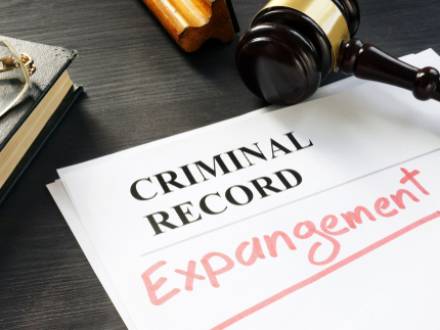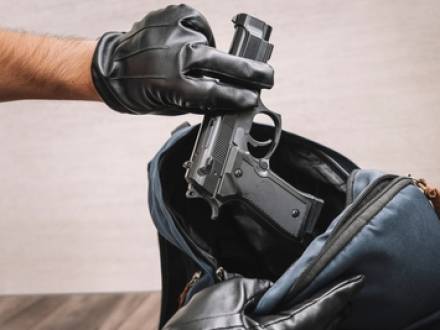Recent Blog Posts
Can I Go To Jail if I Attempted Burglary and Did Not Succeed in Illinois?
 You can be charged with and potentially go to jail for attempting burglary in Illinois, even if you did not succeed in completing the offense. The potential penalties for a burglary charge are harsh. If you are facing criminal charges and have questions about your case, an Aurora, IL burglary defense attorney can help. Consider how Illinois law governs these cases. Then, we can discuss potential defense strategies for challenging the charge.
You can be charged with and potentially go to jail for attempting burglary in Illinois, even if you did not succeed in completing the offense. The potential penalties for a burglary charge are harsh. If you are facing criminal charges and have questions about your case, an Aurora, IL burglary defense attorney can help. Consider how Illinois law governs these cases. Then, we can discuss potential defense strategies for challenging the charge.
What Is the Difference Between Burglary and Attempted Burglary in Illinois?
In Illinois, there is no real distinction between burglary and attempted burglary. Under Article 19 of the Illinois Criminal Code 720 ILCS 5/, burglary occurs when someone knowingly enters or remains within a structure or vehicle with the intent to commit a felony or theft. Breaking into a home to steal someone's belongings is burglary. Entering a business after hours to damage the property is also burglary. You can also be charged with burglary for attempting to do those things. The defining element of burglary is the intent to commit a crime, not the actual commission of that crime.
What Crimes Cannot Be Expunged from Your Record in Illinois?
 Expungement in Illinois offers a way to clear your criminal record. However, not everyone qualifies, and most offenses are not eligible. If you are hoping to move forward with a clean slate, you need to understand the requirements for expunging charges and convictions under Illinois law. An Aurora, IL expungement attorney can help.
Expungement in Illinois offers a way to clear your criminal record. However, not everyone qualifies, and most offenses are not eligible. If you are hoping to move forward with a clean slate, you need to understand the requirements for expunging charges and convictions under Illinois law. An Aurora, IL expungement attorney can help.
Note that expungement, sealing, and executive clemency are three different ways to address a criminal record in Illinois. Expungement erases the record entirely, as if the arrest never occurred. Sealing restricts public access to the record, but it is still viewable for law enforcement and certain employers, specifically those who use fingerprint-based background checks. Executive clemency is a pardon granted by the governor. If you receive clemency, you may then petition the court to have the crime expunged from your record.
Can Felony Convictions Be Expunged in Illinois?
In almost all cases, felony convictions cannot be expunged. The exceptions are reserved for rare cases, but advocacy for reform is ongoing. For example, SB 3463, a law that streamlines the expungement process for juveniles and amends the Juvenile Court Act of 1987, took effect in January 2025. However, despite attempts to expand access to expungement, certain convictions will always remain on your record unless you are pardoned.
Will I Lose My CDL for a DUI in Illinois?
 In Illinois, commercial driver’s license (CDL) holders convicted of driving under the influence (DUI) can have their license suspended or revoked for at least one year. For many, that can mean losing employment and the ability to support their family. If you are facing DUI charges as a CDL holder, you should speak with an experienced Aurora, IL CDL DUI defense attorney as soon as possible to protect your license and career. You have the right to challenge the charges against you, and legal counsel is essential for building a strong DUI defense strategy.
In Illinois, commercial driver’s license (CDL) holders convicted of driving under the influence (DUI) can have their license suspended or revoked for at least one year. For many, that can mean losing employment and the ability to support their family. If you are facing DUI charges as a CDL holder, you should speak with an experienced Aurora, IL CDL DUI defense attorney as soon as possible to protect your license and career. You have the right to challenge the charges against you, and legal counsel is essential for building a strong DUI defense strategy.
What Happens To Your CDL After a DUI in Illinois?
Illinois law is stricter for CDL holders because they are held to a higher standard of safety. Statute 625 ILCS 5/6-514 dictates the regulations for CDL disqualification following a DUI, and it states that operating a commercial vehicle with a blood alcohol concentration (BAC) of 0.04 percent or any amount of substance or drug in the blood automatically disqualifies someone from driving a commercial motor vehicle for at least 12 months for a first-time offense. The time increases to three years if the driver transports hazardous materials. A second offense can lead to the permanent loss of commercial driving privileges, with a possibility of reinstatement after 10 years.
What You Should Know About Illegal Search and Seizure in Illinois
 A common defense in criminal cases, particularly in cases involving drug crimes, is the violation of the defendant’s right to protection from illegal search and seizure. Law enforcement must adhere to strict protocols when searching a person or their property. Failure to uphold the legal standards can be highly detrimental to the prosecution’s case. If you have been charged with a crime, an experienced Kane County, IL criminal defense attorney can help you understand your constitutional rights and how they impact your case.
A common defense in criminal cases, particularly in cases involving drug crimes, is the violation of the defendant’s right to protection from illegal search and seizure. Law enforcement must adhere to strict protocols when searching a person or their property. Failure to uphold the legal standards can be highly detrimental to the prosecution’s case. If you have been charged with a crime, an experienced Kane County, IL criminal defense attorney can help you understand your constitutional rights and how they impact your case.
What Are the Laws Regarding Illegal Search and Seizure?
The Fourth Amendment of the Constitution states that you have the right to be secure from unlawful search and seizure of your person, house, effects, and papers. This means that law enforcement must have a valid warrant to search or take your property. There are only a few exceptions to the warrant requirement. For example, police can search if they have your consent, if evidence is in plain view, if you are already under arrest, or if there are exigent circumstances. Vehicles can also be searched without a warrant if there is probable cause.
Common Defenses Against Retail Theft Charges in Illinois
 Contrary to popular belief, retail theft, also known as shoplifting, can have serious consequences. If convicted in Illinois, you can face jail time, significant fines, and a stain on your criminal record. As you navigate the legal process, a Kane County, IL shoplifting attorney can help you understand your charges and the legal options available. Start by considering some potential defense strategies common to retail theft cases and how they may apply to the circumstances surrounding your arrest.
Contrary to popular belief, retail theft, also known as shoplifting, can have serious consequences. If convicted in Illinois, you can face jail time, significant fines, and a stain on your criminal record. As you navigate the legal process, a Kane County, IL shoplifting attorney can help you understand your charges and the legal options available. Start by considering some potential defense strategies common to retail theft cases and how they may apply to the circumstances surrounding your arrest.
Challenging Allegations of Retail Theft in Illinois
A strong defense is personalized to accommodate the unique situation that led to your arrest and the elements of the investigation that occurred afterward. When you work with a legal representative who is well-versed in how Illinois law addresses retail theft, your counsel will assess the case to determine how best to approach your defense. However, common strategies for fighting a shoplifting charge include:
Arrested for DUI with a Minor in the Car in Illinois
 In Illinois, driving under the influence (DUI) is already a serious offense, but a DUI while transporting a child drastically increases the severity of the penalties. If you have been charged with an aggravated felony DUI, you must understand the charges against you. An experienced Kane County, IL aggravated DUI defense attorney can help navigate your upcoming legal battle and build a robust defense.
In Illinois, driving under the influence (DUI) is already a serious offense, but a DUI while transporting a child drastically increases the severity of the penalties. If you have been charged with an aggravated felony DUI, you must understand the charges against you. An experienced Kane County, IL aggravated DUI defense attorney can help navigate your upcoming legal battle and build a robust defense.
What Does Illinois Law Say About DUI With a Minor in the Vehicle?
Illinois Vehicle Code statute 625 ILCS 5/11-501 states that driving with a blood alcohol concentration (BAC) of 0.08 percent or higher is illegal. Driving under the influence of drugs is also included in this law. The penalties are escalated if a child is in the car when the offense occurs. For a first offense, it escalates from a misdemeanor to a Class 4 felony for aggravated DUI if the child is injured. Even for a first-time offender, the court has little patience for cases that involve potential danger to a child.
Could I Have Committed Forgery in Illinois Without Realizing It?
 It is possible to unknowingly commit forgery in Illinois, but that does not immediately undermine the severity of the crime. Many different offenses fall under the umbrella of forgery and deceptive practices, and knowing exactly what you did wrong is the first step in building a defense. If you were charged with forgery and do not understand why, an Aurora, IL forgery and deceptive practice defense attorney can explain the allegations against you and how you may be able to challenge them.
It is possible to unknowingly commit forgery in Illinois, but that does not immediately undermine the severity of the crime. Many different offenses fall under the umbrella of forgery and deceptive practices, and knowing exactly what you did wrong is the first step in building a defense. If you were charged with forgery and do not understand why, an Aurora, IL forgery and deceptive practice defense attorney can explain the allegations against you and how you may be able to challenge them.
What Is Forgery Under Illinois Law?
Forgery generally refers to the act of changing or creating a false document to use it for deceptive purposes. That broad characterization can refer to a range of crimes, including everything from signing another person’s name on a legal document to generating a fake contract under someone else’s name. According to Illinois law, committing forgery is not limited to the act of creating or altering a document to make it look like someone else did it. It also requires delivering it when you know it is forged and using it to defraud.
What Is the Zero Tolerance Law for Underage DUI in Illinois?
 Underage drinking and driving laws, such as Illinois’ Zero Tolerance law, apply to anyone under the age of 21 caught driving under the influence of alcohol. According to the Zero Tolerance Law, someone can be charged with driving under the influence (DUI) and face severe penalties, even if that person is not above the legal limit of .08 percent BAC.
Underage drinking and driving laws, such as Illinois’ Zero Tolerance law, apply to anyone under the age of 21 caught driving under the influence of alcohol. According to the Zero Tolerance Law, someone can be charged with driving under the influence (DUI) and face severe penalties, even if that person is not above the legal limit of .08 percent BAC.
An Aurora, IL DUI defense attorney will explain the charge against you and help you build a defense to fight it. The court is sometimes lenient on first-time offenders, but having legal representation ensures you understand your rights and make smart decisions about your defense.
What Is Illinois’s Zero Tolerance for Drinking and Driving Underage?
The Zero Tolerance Law allows the court to charge someone under the age of 21 with a DUI for having even a trace of alcohol in their system. For a standard DUI charge applied to drivers 21 and older, the blood alcohol concentration (BAC) level has to be 0.08 percent or higher to be considered legally impaired. Under Zero Tolerance, the BAC level is 0.00 percent, and the investigating officers have the discretion, based on testing or refusal to test, whether to charge you with a Zero Tolerance violation.
Is Aggravated Speeding a Misdemeanor or a Felony in Illinois?
 Speeding is a leading cause of auto accidents in Illinois. Aggravated speeding is an additional level of reckless driving that can result in life-changing consequences for everyone involved. If you have been charged with aggravated speeding, how far above the speed limit you were going when the officer clocked your speed will determine how you are charged. To better understand the charges against you and your options for challenging them, you should speak to an experienced Aurora, IL criminal traffic violation defense attorney as soon as possible.
Speeding is a leading cause of auto accidents in Illinois. Aggravated speeding is an additional level of reckless driving that can result in life-changing consequences for everyone involved. If you have been charged with aggravated speeding, how far above the speed limit you were going when the officer clocked your speed will determine how you are charged. To better understand the charges against you and your options for challenging them, you should speak to an experienced Aurora, IL criminal traffic violation defense attorney as soon as possible.
How Is Aggravated Speeding Defined in Illinois?
Illinois Statute 625 ILCS 5/11-601.5 categorizes aggravated speeding as either a Class B or Class A misdemeanor. If you were driving between 26 and 34 miles per hour in excess of the speed limit when you were caught, you could be charged with a Class B misdemeanor. If your speed exceeded 35 miles per hour over the speed limit, the charge could be a Class A misdemeanor, which carries harsher penalties.
What Happens After a Third DUI in Illinois?
 Illinois has strict DUI laws designed to deter people from driving while under the influence of drugs or alcohol. First-time offenders are often treated more leniently but still face heavy penalties. If you have been charged with a repeat DUI offense and have concerns about what challenges are ahead, an Aurora, IL DUI defense attorney will walk you through the laws that apply to these cases and advise how you may be able to defend yourself.
Illinois has strict DUI laws designed to deter people from driving while under the influence of drugs or alcohol. First-time offenders are often treated more leniently but still face heavy penalties. If you have been charged with a repeat DUI offense and have concerns about what challenges are ahead, an Aurora, IL DUI defense attorney will walk you through the laws that apply to these cases and advise how you may be able to defend yourself.
What Are the Potential Penalties for a Third DUI in Illinois?
A third DUI conviction in Illinois is an aggravated DUI and often carries substantial penalties that vary depending on the circumstances of your arrest. If convicted, you would likely face a minimum of 90 days in jail and several thousand dollars in fines. When some aggravating factors are present, you could face a maximum of 14 years of incarceration and up to $25,000 in fines.








